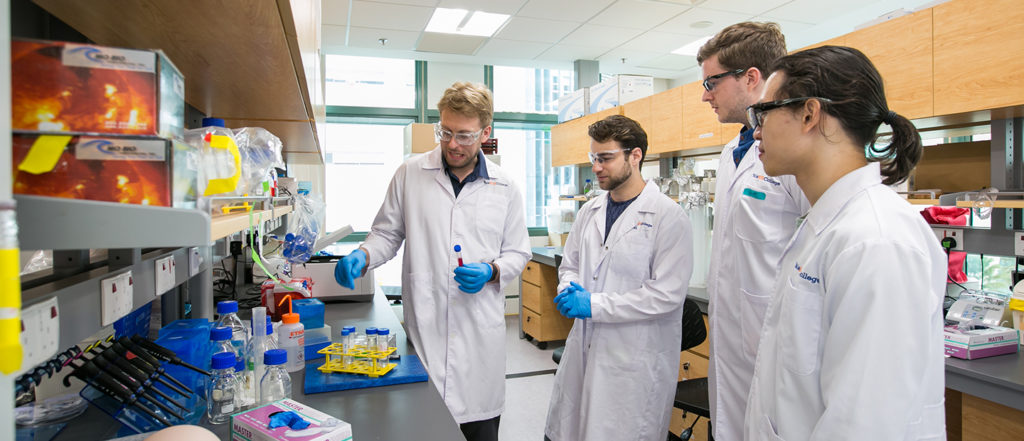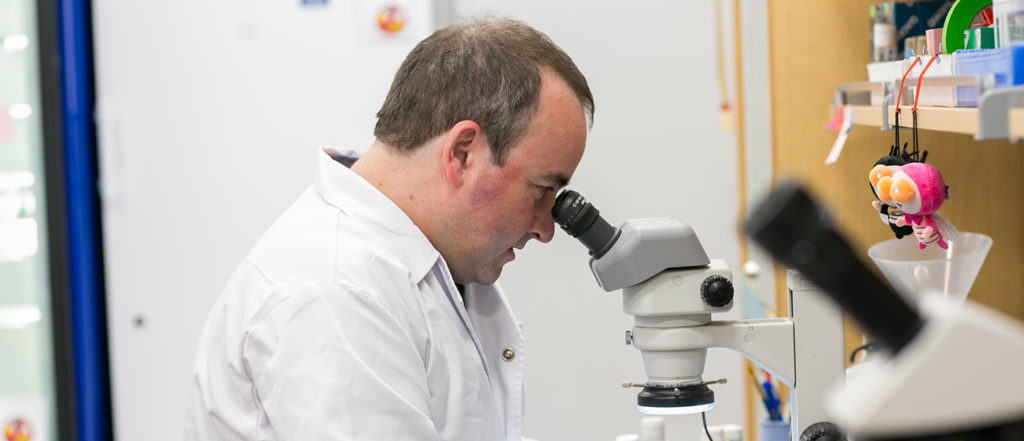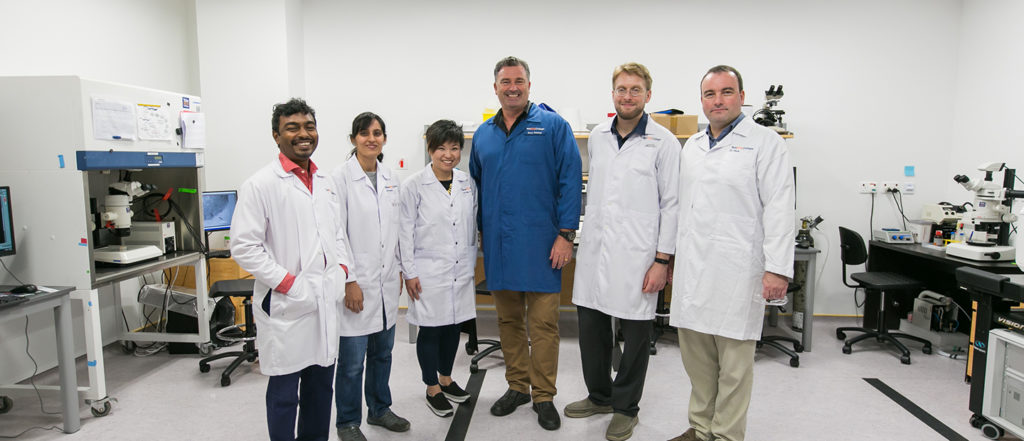Opening of new laboratory to boost Yale-NUS research capabilities
In April 2018, Yale-NUS College unveiled a new 7,000 square-feet research facility, called the Division of Science Research Laboratory @E6, which will support advanced research in molecular biology, neurobiology, developmental biology and ageing.
Located at 5 Engineering Drive 1, a five-minute drive away from the main Yale-NUS campus, the new E6 research facility is a large, open-plan laboratory space with specialist infrastructure for research using model organisms, tissue culture facilities, model organism suites and an imaging facility.
Assistant Professor of Science (Biochemistry) Jan Gruber, whose research focus is in biological ageing, is one of the researchers working in the E6 laboratory. He said, “Populations around the world are ageing rapidly, resulting in economic, medical, and social challenges. Singapore is one of the fastest ageing societies in the world but also a hub of biomedical research excellence. It is therefore not surprising that there is growing interest in leveraging this expertise to develop new strategies to ameliorate the impact of population ageing.”
 Dr Jan Gruber (first from left) with students.
Dr Jan Gruber (first from left) with students.
In bringing these facilities together at the E6 laboratory, Dr Gruber said a shared focus is to leverage these tools to understand molecular mechanisms of ageing and age-dependent diseases. The ultimate goal is to develop medical interventions that will delay or prevent age-dependent disease and decline in humans.
The new laboratory houses dedicated facilities for model organism studies, including a large Caenorhabditis elegans (nematode worm) room, an arthropod containment facility, an advanced imaging facility, and procedure rooms for neurobiology and behaviour studies. Model organisms, including nematodes, fruit flies, and zebrafish are powerful tools of discovery in biology research.
Life Sciences major Jay Lusk (Class of 2018) used the advanced imaging technologies and microscopes at the E6 laboratory for his capstone project, which sought to investigate the role of the protein, Raf in setting up the dorsal-ventral axis of Drosophila fly (fruit fly) embryos. The capstone is a year-long independent research project that all seniors must complete as part of the Yale-NUS curriculum. Jay said that the new facility allowed him to use “one of the best confocal microscopes available”, which allowed him to produce extremely clear and accurate data from his imaging experiments.
The research at the Yale-NUS laboratory at E6 will focus on cutting edge pre-clinical and molecular ageing research using model organisms. The work is part of both national and international initiatives, aimed at targeting molecular mechanisms of ageing to develop future therapeutic interventions in humans.
Besides Dr Jan Gruber who works primarily with nematode worms, other Yale-NUS scientists who do research at the E6 laboratory include Assistant Professor of Science (Life Sciences) Ajay Mathuru whose work focuses on neurobehaviour through conducting experiments with zebrafish and Assistant Professor of Science (Biology) Nicholas Tolwinski whose research primarily makes use of Drosophila flies. With the new laboratory, researchers who work with different model organisms can conduct simultaneous research and engage in collaborative work. For example, Lim Chu Hsien (Class of 2018) had the opportunity to work on her capstone project in the E6 lab, to study a cellular process associated with Alzheimer’s disease using three different model organisms.
 Dr Nicholas Tolwinski.
Dr Nicholas Tolwinski.
Current Yale-NUS projects include work with the new Centre for Healthy Ageing at the National University Health System (NUHS) on lifespan-extending drugs and screening platform for drug discovery. Another project takes advantage of Yale-NUS College’s collective faculty expertise across multiple model organisms to develop new models of neurodegenerative diseases such as Alzheimer’s disease.
Professor Stephen Pointing, Director of the Science Division at Yale-NUS, said, “The laboratories are part of a mixed-use model where we integrate research and teaching spaces so that students get direct exposure to a professional scientific research environment during their learning. This exposure will enable students to become competent laboratory scientists during their undergraduate training with Yale-NUS faculty.”
 Researchers working at E6 laboratory. From left: Dr Ajay Mathuru, laboratory managers Dr Prameet Kaur and Dr Ng Li Fang, Professor Stephen Pointing, Dr Jan Gruber and Dr Nicholas Tolwinski .
Researchers working at E6 laboratory. From left: Dr Ajay Mathuru, laboratory managers Dr Prameet Kaur and Dr Ng Li Fang, Professor Stephen Pointing, Dr Jan Gruber and Dr Nicholas Tolwinski .
The space is also configured to support hands-on student engagement in laboratory activities and classes, as well as in-depth research closely mentored by faculty members. The newest E6 laboratory, together with the seven teaching laboratories located on the main Yale-NUS campus, will enhance the overall Science learning and research ecosystem at Yale-NUS.





